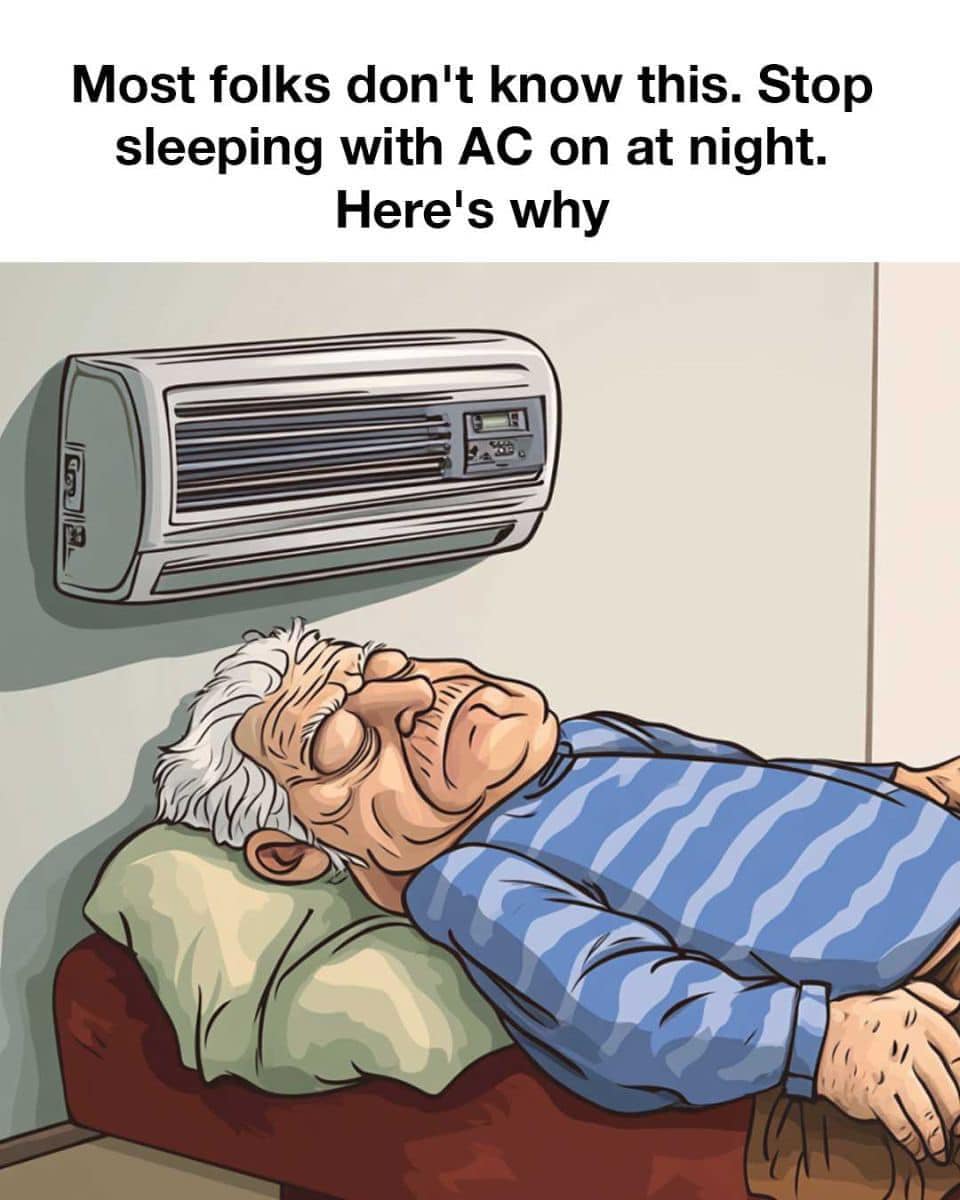In many homes, air conditioning (AC) has become a staple, especially when hot summer months come. For many people, sleeping with the AC on at night feels almost like a necessity to escape the sweltering heat and achieve a comfortable night’s sleep.
However, there are several compelling reasons to reconsider this habit. While sleeping with the AC on might provide temporary comfort, it can have long-term consequences for your health, energy bills, and the environment. Here’s why you should think twice before turning on the AC at bedtime.
1. Negative Impact on Health
Sleeping with the AC on can cause several health issues, some of which you might not even be aware of. Here are a few:
a. Dry Skin and Dehydration: Air conditioning reduces the humidity level in the room, which can dry out your skin and mucous membranes. Waking up with a dry throat or itchy eyes is a common experience for those who sleep with the AC on. Over time, this dryness can lead to more severe problems like dehydration or respiratory issues.
b. Respiratory Problems: The cold, dry air can cause the nasal passages to become congested, leading to difficulties in breathing. For people with pre-existing conditions such as asthma, the AC can exacerbate symptoms and lead to nighttime coughing or wheezing.
c. Increased Risk of Infections: The constant circulation of air can also make bacteria and viruses spread. Air conditioning units, if not cleaned and maintained properly, can become breeding grounds for mold, mildew, and other pathogens. This makes you more susceptible to respiratory infections, especially during sleep when your body’s immune system is at its most vulnerable.
d. Muscle Stiffness and Aches: Have you ever woken up with a stiff neck or back? The chilly environment created by the AC can cause muscle stiffness or exacerbate existing conditions like arthritis. The muscles contract in the cold, leading to aches and discomfort, especially if you sleep in an awkward position.
2. Disrupted Sleep Patterns
Our bodies are designed to undergo slight temperature fluctuations throughout the night, which are part of our circadian rhythm. When the AC keeps the room at a constant, often lower temperature, it can interfere with this natural process.
a. Reduced Deep Sleep: A cooler room can stop the body from entering the deeper stages of sleep, which are crucial for repair and recovery. In deep sleep, the body performs many essential functions such as muscle repair and memory consolidation. An AC set too cold can interrupt this phase, leading to grogginess and a lack of restorative sleep.
b. Frequent Waking: In case the AC temperature is set too low, you might wake up feeling cold or uncomfortable. Frequent waking can fragment your sleep, leading to poor sleep quality and making it harder to feel rested in the morning.
3. Environmental Impact
Sleeping with the AC on all night increases energy consumption, which not only raises your utility bills but also has a substantial environmental impact.
a. High Energy Consumption: Air conditioning units consume a lot of power, especially when run continuously through the night. This increased demand for electricity can strain power grids, particularly during peak usage times in the summer.
b. Greenhouse Gas Emissions: The more electricity we use, the more fossil fuels are burned to generate it, releasing greenhouse gases into the atmosphere. Air conditioners also use refrigerants, which can be potent greenhouse gases if not properly managed. Thus, excessive use of AC contributes to global warming and climate change.
4. Financial Costs
Using the AC every night can significantly increase your electricity bills. Over time, these costs add up. By reducing reliance on the AC at night, you can save a substantial amount of money annually.
👇 To continue reading, scroll down and click Next 👇
ADVERTISEMENT

